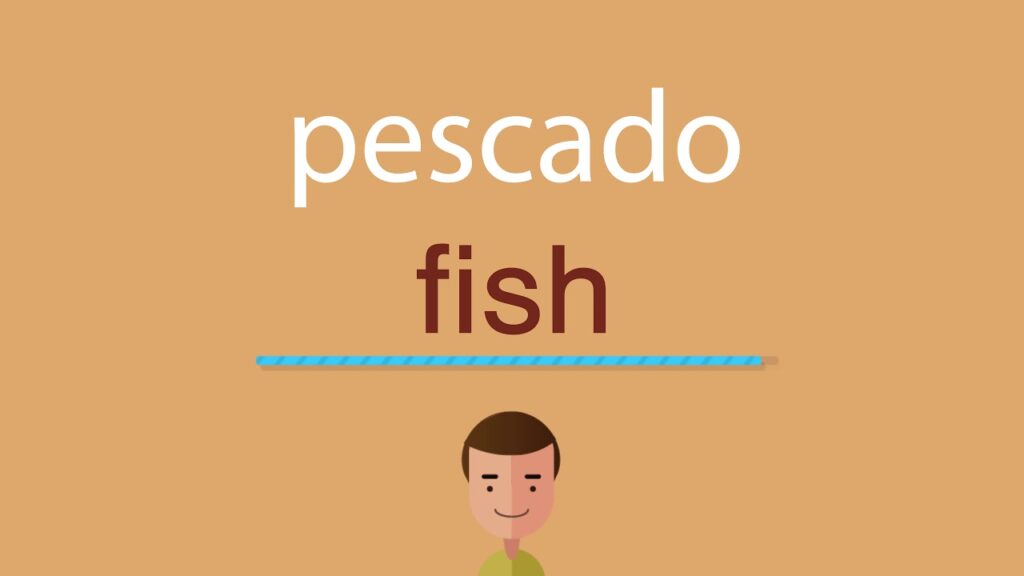
When it comes to speaking or writing in English, knowing how to spell commonly used words correctly is a must. One such word that often comes up in daily conversations is pescado, the Spanish term for fish. However, if you’re trying to communicate with native English speakers, it’s crucial to understand how to write pescado in English. While it may seem like a simple task, there are some nuances to the word that may trip you up if you’re not attentive to detail. In this article, we’ll explore the different ways to write pescado in English and provide some examples to help you master the spelling.
¿Cuál es la traducción al inglés de la palabra pescado?
The translation of the Spanish word pescado into English is fish. It refers to any aquatic vertebrate that is caught or farmed for human consumption. Fish is a very important source of protein, Omega-3 fatty acids, and other nutrients that are essential for good health. It is a versatile ingredient that can be cooked in different ways, such as baking, frying, grilling, or boiling. In addition to its nutritional value, fish is also a cultural and economic resource that plays a significant role in the global food industry.
Fish is a valuable source of protein, essential nutrients and Omega-3 fatty acids. It can be cooked in various ways including baking, frying, grilling or boiling. Apart from its nutritional benefits, fish also holds cultural and economic significance in the food industry.
¿Cuál es la forma plural en inglés de la palabra pescado?
In English, the plural form of the word fish is usually fish, but fishes can also be used. The term fish typically refers to multiple individual fish of the same species, while fishes can refer to multiple different species of fish. It’s important to note that the context in which the word is used can impact which plural form is most appropriate. For example, in scientific or technical writing, the plural form may differ depending on the subject matter.
In specialized writing, the plural form of fish can vary depending on the context. For example, when discussing multiple species of fish, fishes may be used instead of fish. It’s important to use the appropriate plural form for the subject matter, especially in scientific or technical writing.
¿Qué significa la palabra pescado en inglés cuando se refiere a comida?
La palabra en inglés fish se usa comúnmente para hacer referencia a la comida que proviene del agua, como el pescado y los mariscos. Esta palabra no se limita a ningún tipo específico de pescado, sino que puede referirse a diferentes especies, incluyendo salmón, atún, bacalao y muchos otros. El término también se aplica a los productos derivados del pescado, como el aceite de pescado y los suplementos alimenticios de omega-3. En resumen, el término fish en inglés es amplio y abarca diferentes tipos de alimentos que provienen del mar y los ríos.
La palabra fish en inglés se utiliza para hacer referencia a los alimentos provenientes del agua, como los distintos tipos de pescados y mariscos, así como también los productos derivados de ellos. Este término engloba una variada cantidad de especies y sus respectivos subproductos, como el aceite de pescado y los suplementos alimenticios, de gran importancia para la alimentación humana.
The Essential Guide to Writing Fish in English: Tips, Tricks, and Common Mistakes
Writing about fish in English can be challenging, especially for those who are not familiar with the technical terms and scientific jargon that go with it. However, learning the essential tips, tricks, and common mistakes can help writers produce accurate and engaging content about fish. One of the most important things to keep in mind is to familiarize oneself with the taxonomy of different species of fish, as this will make it easier to identify them and provide specific information. Another tip is to avoid overusing vague and imprecise terms such as fish or seafood and to use more descriptive language instead. Overcoming these challenges can result in informative and compelling writing about one of the most fascinating and diverse forms of marine life.
Understanding fish taxonomy is crucial for accurate and descriptive writing. Avoid vague terms and focus on precision for engaging content.
Unlocking the Secrets of Spelling Fish in English: A Comprehensive Examination
Spelling fish in English can be a challenging task due to its irregularities and exceptions. However, understanding the origins and history of the language can help unlock the secrets of spelling fish. For instance, the silent ‘gh’ in words like ‘fish’ and ‘ghoti’ can be traced back to Old English and Middle English spellings where similar combinations were used. By delving into etymology and linguistic patterns, one can gain a comprehensive understanding of the intricacies of spelling fish in English.
A deep understanding of English language history and etymology can shed light on the complexities of spelling words like fish. By examining Old English and Middle English spellings, we can gain insight into the origins of silent letters and irregularities in English spelling.
En resumen, escribir la palabra pescado en inglés puede ser un poco confuso debido a las diferentes opciones y variaciones dependiendo del contexto y la región. Sin embargo, con un conocimiento básico de la gramática y la pronunciación del idioma inglés, podemos determinar fácilmente la forma correcta de escribir esta palabra. Es importante recordar que la ortografía influye en la comprensión adecuada de cualquier concepto, y es fundamental para establecer una comunicación efectiva en cualquier idioma. Por lo tanto, llevar a cabo una investigación adicional y familiarizarse con las variantes de ortografía y pronunciación puede mejorar significativamente el conocimiento general del idioma inglés. En resumen, siempre es fundamental tener en cuenta las múltiples alternativas y variaciones del idioma, incluso en la escritura de una palabra tan sencilla como pescado.